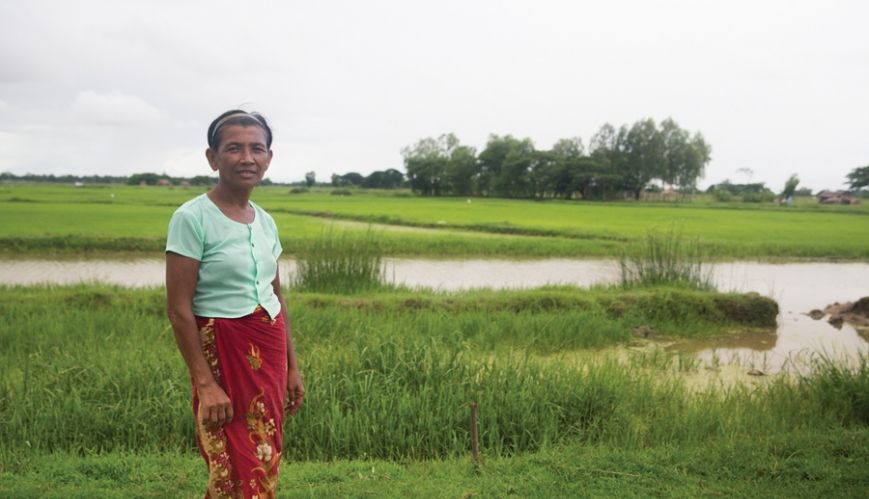Small loan, big change for women in Myanmar

Small loan, big change for women in Myanmar
Thein Thein is providing for her family thanks to a microcredit loan through The Salvation Army in Myanmar.
Living in Myanmar, a south-east Asian country where approximately 32 per cent of the population lives in poverty, Makyi San and her husband were struggling to make ends meet. Thanks to the efforts of The Salvation Army International Development (SAID) team, Makyi San was able to apply for a microcredit loan to start growing vegetables to sell at market.
“With my second loan, I bought rice and sold that for a profit as well,” she says. “I’m now on to my third loan, which I started a shop with. I sell an assortment of foods as well as soap.”
Makyi San is now a successful shop-owner, generating income for her family and sowing back into her community. “I have been able to renovate and expand our house as well as connect electricity,” she says.
Empowering mothers
The best way to lift children out of poverty is to empower their mothers. Often, ingrained gender inequality in poor communities mean women get left behind when it comes to gaining the skills and resources to earn an income.
Your support of microcredit loans for women in Myanmar helps bring about holistic change for vulnerable and marginalised communities. By supporting mothers with their new or existing businesses, women are able to feed and support their children. The result is children who stay in school and create brighter futures for themselves.
Children benefit
Thanks to a microcredit loan, Ma Myint Mar Htay was not only able to improve her business, but can now also concentrate on being a good mum. “I decided that growing vegetables would be a good business for me as I already had land that I could use. Through the microcredit, I learnt about growing vegetables and now every morning I sell my vegetables at the market as a wholesaler. This frees up the rest of my day to concentrate on raising my children.”
Self-help Groups
The Salvation Army is also making an impact through Self-Help Groups, and it was through one of these groups that Thein Thein learned about a microfinance loan.
Thein Thein lives in a poor village near the Yangon River. Raising a family in a bamboo hut, without a husband who left her, she was unemployed, undernourished, poor and admitted to feeling useless.
Thein Thein is the sort of person no one sees, invisible to all and seemingly of no importance or value to society. But The Salvation Army saw her.
One day at the village market, a Salvation Army community worker noticed her and invited her to be part of a self-help group.
Attending the group, Thein Thein learnt about the microfinance program, became involved, took a loan, developed a business and is now making a profit. This income is enough to feed her family and pay for her grandchildren’s schooling.
She says: “I have a very busy and happy life now. I feel very proud to be able to support my family.”
There are many more women in need looking for the chance to kickstart their business and earn a living. Find out how you can help support these mothers through our Microcredit Loan Program by visiting salvos.org.au/said